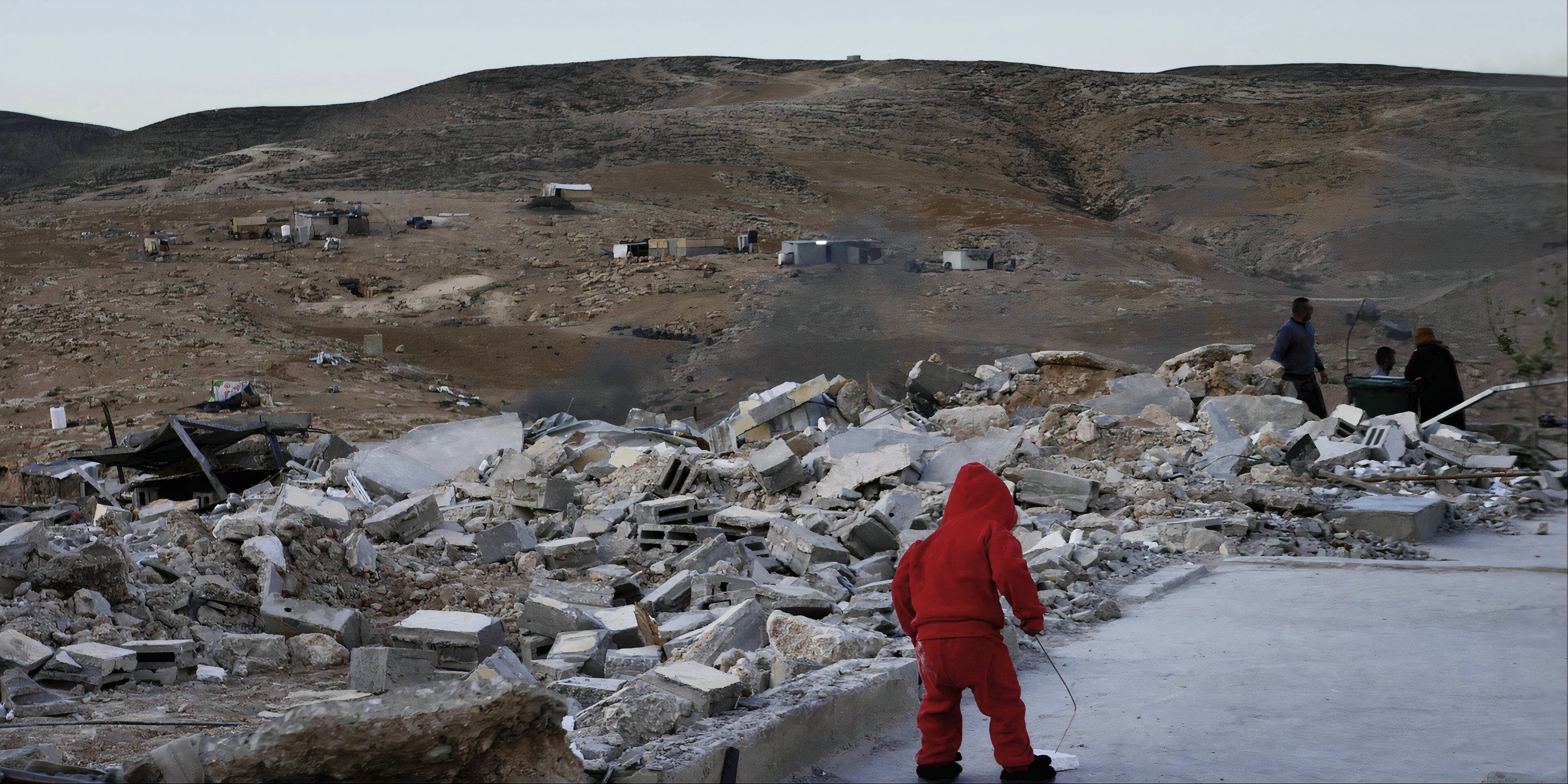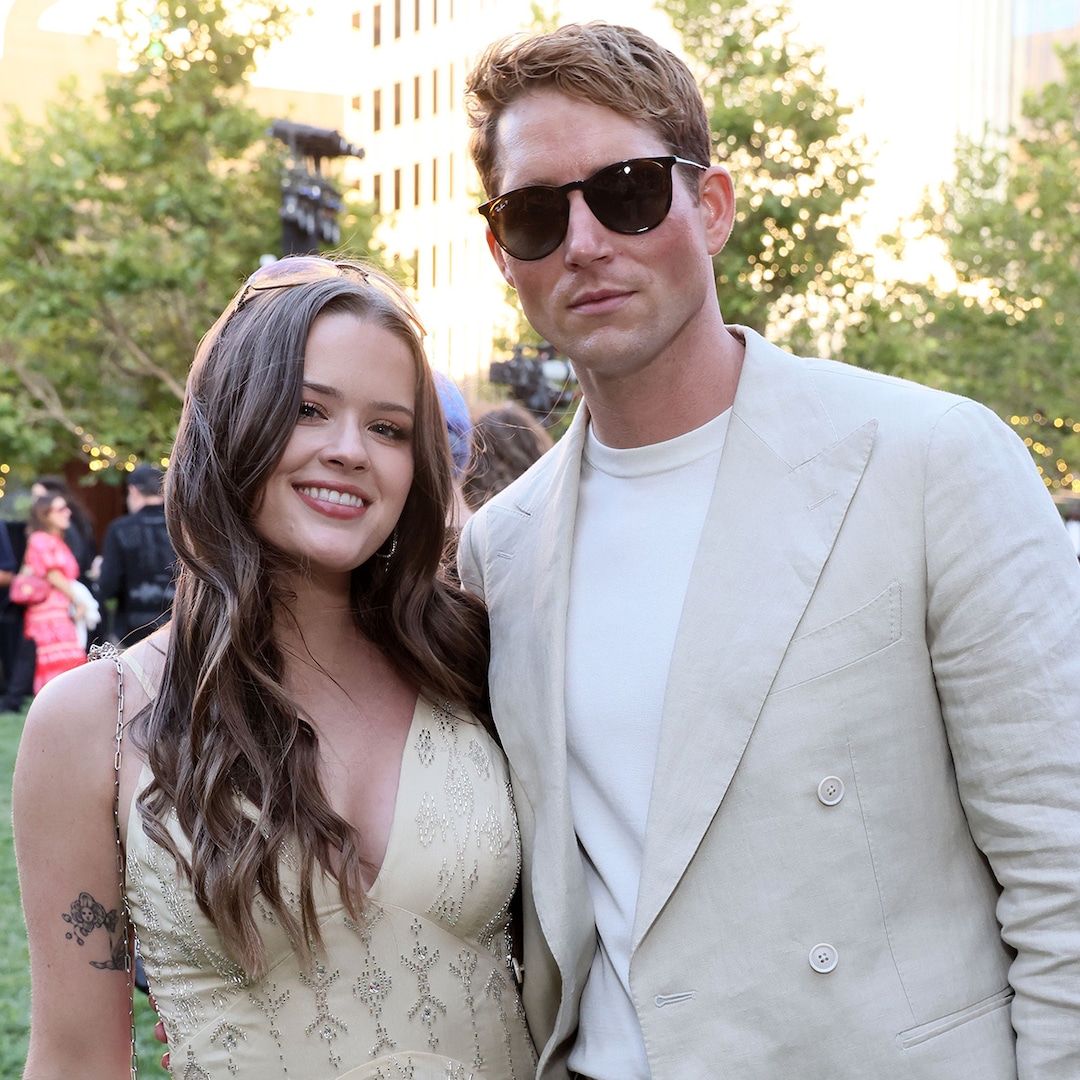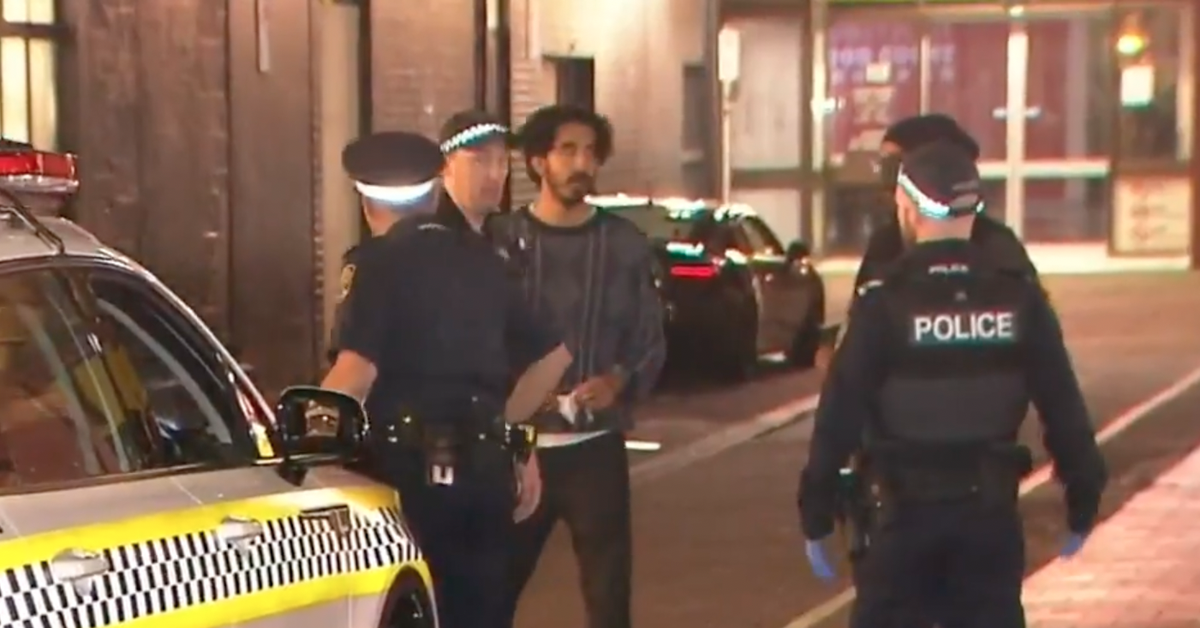Here’s a horror short film for you to watch titled Reciever. It centers on Sriyani, “an idealistic and overtaxed social worker of Sri Lankan descent, is a telephone counselor.”
It’s explained that she has “built her life around helping others, although always at the expense of those closest to her. So who is going to defend her when she is hypnotized by a caller tonight?”
The film was directed by Cavan Campbell, who added: “Reciver is a chamber horror film about toxic masculinity, isolation, and the commodification of empathy.”
The was shared in collaboration with the FilmQuest Film Festival, where we are looking to expose some of the radical indie genre films and shorts that filmmakers are creating. I inlcluded a full interview with the director below.
What was the inspiration for your film? How did you come up with the idea?
My then partner was working as a telephone counsellor. Through her experiences, I was confronted by the modern social work industry’s reliance on the commodification of its staff’s empathy. To do the job requires a belief in the truth of your client’s, an acceptance of the world they present and their place in it, not too dissimilar from how a successful hypnosis subject must, by definition, believe in in the world being spun by their hypnotist.
The more my cowriter Luke Higginson and I thought about the implications of this, the more it scared us. It seemed an environment ripe for abuse, an industry that expects its staff, driven by ‘calling’ or ‘justice’, to absorb its burdens without outlet. I felt that there was something more distinct than a workplace drama in this setting.
So what circumstances could throw ‘helpers’ and ‘users’ together? When PUA [pickup artist] culture became mainstream, it was greeted with equal intrigue and mockery. But PUA communities are now only a small part the internet’s network of men’s spaces (‘the Manosphere’), whose language is distinctly chauvinist— disdain, selfishness, and bombast. PUA culture is a misty reflection of ‘helping industry’ work culture—both have a habit of treating women as commodities and reinforcing traditional gender roles.
The anonymity central to online colonies mirrors those semi-anonymous encounters over telephone lines. And the ‘hypnotic seduction’ sub-community teaches men how to pair the appearance of ‘feminine’ empathy with language processing strategies to manipulate women. We had found our villain. And we had a psychological horror film in front of us.
Tell us about yourself. What is your background? How long have you been a filmmaker?
I’m a Sri Lankan-Canadian filmmaker based in Toronto, though I grew up in the middle of the woods in Prince Edward Island, Canada’s smallest province, on the Atlantic coast. I have been working as a filmmaker for 22 years. When not on my own films, I work in lighting design and am a standing member of IATSE. Most recently I worked on Guillermo Del Toro’s new feature Frankenstein, and all 5 seasons of Star Trek: Discovery.
What inspires you to work within genre cinema and tell these kind of stories?
Horror lights me on fire because you can use a gigantic pallet of metaphors and imagery to explore real life, far wider than is admitted when making realist drama alone.
What was your favorite part of the filmmaking process for this project?
I most enjoyed workshopping the film with the actors. Because Sriyani would be interacting directly with a double manifested by Drake’s hypnosis, we cast a performance double to work with lead actress Tahirih Vejdani. This performer, actress Mina James, would be playing the ‘opposite’ character to whichever ‘side’ of the scenes involving both characters was currently being shot.
So having 3 days to work with these actors, and to see them develop a common language for Sriyani’s internal life (and the Double’s response to it), and work with them to create a a distinct gait and movement for the two characters was thrilling to be a part of, and absolutely exposed new shades in the characters that I hadn’t always overturned in writing the film.
What are you most proud of with this film?
The flashes of hypnotic imagery, and how they were deployed, probably remain my favourite elements in the film. My picture editor and co-writer, Luke Higginson, did a lot of really fine work exploring just how, visually, the hypnotic imagery would intrude in Sriyani’s life.
We knew when in the scene these flashes of imagery would assault her (I needed to have this clearly laid out for the actor on set), but the exact recipe of imagery, tone, and timing was all laid out in the editing room. And the photography of the hypnotic imagery was one of the most relaxing, enjoyable parts of the shoot for me. I spent a week after the main body of the shoot was complete making miniature ice floes and sea ice.
We brought together dry ice, a fog machine, and fan to shoot the miniature ice effects in a pan outdoors (at cinematographer John Tarver’s sailing club, of all places), with the painting from Sriyani’s apartment as the reflected ‘sky’ behind the ice. And we spent 4 hours shooting every imaginable configuration of ice, smoke, fog, and wind. It was just raw, unencumbered experimentation, whose deadline was set only by how long we had before all the ice miniatures melted. It made me feel like I was in film school again.
What is a favorite story or moment from the making of the film you’d like to share?
Production designer Jennifer Tam and I wanted to be subtle with how Sriyani’s apartment was designed. We didn’t want to throw up a Sri Lankan flag in the background to get across the importance of her heritage (which was pretty essential in a film about the abuse of identity). I was pretty adamant that I wanted to use authentically Sri Lankan arts and set dressing, but Toronto’s prop houses mainly only had vaguely ‘Indian’ collections that were a mix of Indian and Pakistani items.
So I went about assembling a collection of Sri Lankan photos and artifacts and art borrowed from my mum, her cousins, and my own collection. Seeing that set fully dressed, pictures of my family on the wall, really lit up Tahirih and, as she told me later, made it much easier for her to bring specificity to Sriyani on screen. Walking her through that set the first time and answering her questions about all the pieces was an absolute joy as a director.
What was your most challenging moment or experience you had while making your film?
Shooting motion control. However long you think it will take, multiply by 3. Though there are far more small-scale motion control tools available now than 20 years ago, it remains a finicky, precise, and technical means of filmmaking that independent filmmakers should be cautious when using. I had worked with motion control before, and I was still a little overzealous on set (which is part of the reason why my next film THROUGH THE THROAT, which also used double effects, relied on much more traditional filming and editing cheats to put the two characters in the same scene).
If it did, how did your film change or differ from its original concept during pre-production, production, and/or post-production? How has this changed how you’ll approach future projects as a result?
When Luke and I wrote the film, we had a much different conception of how Drake would speak. As you never see the main antagonist in the flesh, we knew Drake needed a distinct voice, and we assumed that a ‘bigger’ and more imposing voice would be more unnerving to the audience.
But when we met actor David Tompa and saw what he connected to with Drake (namely Drake’s insecurity and smallness), it radically changed how we wanted the antagonist to sound–and it was much more complex and interesting a direction than we originally planned: not merely a ‘big’ person playing big on the phone, but a ‘small’ person playing big on the phone. It gave so much more colour to Drake’s dialogue and surroundings than we originally planned.
Who were some of your collaborators and actors on the film? How did you start working with each other?
Lead actors Tahirih Vejdani and David Tompa, and performance double Mina James, all of whom were met in auditions (though it turned out that my girlfriend and I had seen Tahirih a year before in a stage production, when my girlfriend jokingly said “she’s really good, and looks Sri Lankan, you should cast her!”).
Picture editor Luke Higginson I have known for 20+ years (we met in film school), and sound designer James Bastable had worked with me on my previous film HANGNAIL. Composer Deanna Choi I met two years before when she was workshopping a stage musical at the Soulpepper Theatre in Toronto — I was fascinated by her work (she was a recent graduate), and I called her up to say I wanted to work with her on…something in the future.
Production designer Jennifer Tam was recommended to me by my designer on HANGNAIL, and I was thrilled that she and I hit it off so well. And DOP John Tarver is the current cinematography professor at my alma mater. When I approached him to see if he could recommend any recent cinematography grads, we began talking about RECEIVER, and when he heard that I wanted to shoot and light the film like a 1980s Brian DePalma film, he asked if he could submit his reel for consideration instead. John has a great eye, and we bonded a lot over a love of hard lighting.
What is the best advice you’ve ever received as a filmmaker and what would you like to say to new filmmakers?
The best advice I received is also the advice most worthy of passing on: Only make filmmaking your life if you can’t envision yourself doing anything else. As an industry, there is so much disappointment, delayed gratification, hard work that goes unrewarded through no fault of your own.
It can be very discouraging, and the fire that keeps you warm on those cold nights is the fire in your belly. So if you can envision being happy doing anything else, you should do that thing and make beautiful films as a hobby. But if you’re a misfit who is lit on fire by filmmaking, then lay all your kindling down and set yourself alight with everything you’ve got.
What are your plans for your career and what do you hope this film does for it? What kind of stories would you like to tell moving forward?
I want to keep working in psychological horror (and did with my next film THROUGH THE THROAT). There’s something about using the dreadful to explore the everyday that lights me on fire. RECEIVER was out at festivals for the rest of 2021 and into 2022, and in 2023 began streaming and broadcast (most notably on Canada’s national broadcaster CBC).
When RECEIVER won Best Short Film at the Toronto Reel Asian International Film Festival, it really opened a lot of doors in a difficult year (it was the middle of the pandemic), particularly a 2021 run on Air Canada’s worldwide in-flight entertainment system. I feel like the days of ‘calling card’ films bringing singular attention are largely gone.
I think every project should just aim professionally to make the next project slightly easier to make. One step in front of the other. I had hoped that RECEIVER would bring some attention to the new direction of my film work (it was the first real horror film that I had directed after writing several scripts in the genre), and it did. So I was thrilled with what it accomplished. And then I moved on to writing THROUGH THE THROAT.
What is your next project and when can we expect to see it?
My next project after RECEIVER, THROUGH THE THROAT, is screening at Film Quest right now, and is at the beginning of its festival run. I hope it will be out to more festivals and streaming in 2025.
Where can we find more of your work and where can interested parties contact you? Do you have a website or YouTube/Vimeo channel? Social media handles?
My website, www.interlockpictures.com has links to my YouTube and Vimeo accounts, and currently hosts RECEIVER as well as my previous film HANGNAIL, both of which are available to watch for free. In addition, I’m on Instagram and Facebook @InterlockPictures, Letterboxd at SecamTO, and Twitter @CCamOperator
Bonus Question #1: What is your all-time favorite film?
It’s a tie between Lawrence of Arabia and Blade Runner. Please don’t ask me to choose which of my children is my favourite.
Bonus Question #2: What is the film that most inspired you to become a filmmaker and/or had the most influence on your work?
I would like to say North By Northwest, which my dad introduced me to at the very cusp of becoming a teenager, and it was hugely influential. Now, all of that is true, but the real answer is Raiders of the Lost Ark.
I was an 80s kid, and adored Indiana Jones and Star Wars. But it was my love of Raiders (and wearing out two VHS tapes of the film) that had me set at 10 years old to make films with my life, before I even understood what a film director does.
Granted I don’t really make adventure films, so we might say that the storytelling of North by Northwest and Raiders weren’t so much the influence as the precision of their craft, and their absolute foregrounding of audience experience. Sometimes the ‘light’ films can be the most profound.



















